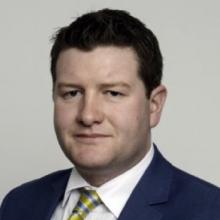

The Southern District Health Board has one of the country's largest DHB deficits, but it is also about to play its part in planning the most expensive hospital development in New Zealand's history.
Some important decisions concerning the new Dunedin Hospital - most notably where it will be - have already been taken, but thousands of decisions remain about design of the new buildings and the services to be provided within them.
Voters have a big field of candidates from which to choose.Seventeen candidates are running for four Otago constituency seats and 11 are vying for three Southland seats.
Many candidates are determined the first elected Southern DHB in six years must play a part in those decisions.

Southland constituency candidate and lawyer Ben Nettleton said given so many things could potentially go wrong with any building project, let alone one of the size of the hospital, the new board needed to ensure appropriate project management was in place.
''It is the early stages, but the board needs to have good engagement and constructive discussion on the hospital, and keep the public informed.''
Southland constituency candidate Leanne Samuel, a former executive director of nursing and midwifery, said having worked alongside many of the clinicians who had assisted with planning to this point, she was confident in the project process so far.
''It's a huge project but a really exciting one, and I am confident it has been well managed,'' she said.
However, Ms Samuel was not so complimentary about the workplace culture in the SDHB.

''It is a shocking culture that doesn't address the actual issues of demand, and demands are increasing,'' Ms Samuel said.
''We know the population is ageing, we know that we have comorbid health conditions, and unless we invest in the staff on the ground, listen to them, and put the correct resources in, staff will leave the sector and we won't be encouraging new graduates coming into the system, and people's outcomes will start to be affected.
''Culture and how we address quality, how we address workforce, are mission-critical in this sector.''

Otago constituency candidate Lyndell Kelly, an SDHB-employed radiation oncology specialist, had no doubt claims of a ''toxic'' culture were made on credible grounds.
''They nailed all the nice words about conquering bullying and having people there to console you if you feel bullied; they call it the 'Speak Up, We're Listening', programme, but we speak up and we get ignored, in case it costs something,'' Dr Kelly said.
''That's the problem ... most improvements do cost something, until you get over the hump of making it more efficient.''
Ilka Bekhuis, Otago constituency candidate and Community Health Council member, agreed, saying having seen the health system close-up through the illness of a family member that a bullying culture was evident.
''It's time that the SDHB adopts a new way of working clinically, and moves towards fostering a collaborative environment, where staff work as a team and hierarchies are broken down,'' she said.

''Collaborative healthcare teams are international best practice, and overseas healthcare teams have led to increased quality of care for patients and improved working environments for staff.''
Wanting to change things is all well and good, but will the SDHB have the resources for board members to implement any of their plans?
Disability sector business owner Shanon Arnold said he had ''a fire in my belly'' to make a difference, but if elected would approach a difficult job with his eyes wide open.
''I am a business person at present and I think some new eyes in the DHB can only be beneficial to us all,'' he said.
''My belief is those that work in the system can get blinded by it.''

Otago candidate Malcolm Macpherson, who served four terms on the Otago and then the Southern DHB, expected a ''potentially awkward transition'' from the current commissioner team to an elected board.
''The incoming board needs to be frank with itself, to its organisation, and to its minister and ministry, and especially to its various publics, clarifying exactly what factors drive its performance,'' Dr Macpherson said.
''What compromises would need to be made to break even? What are the costs and benefits in service terms, in human terms, in public health terms of achieving that? What changes are possible, and why are they not being achieved?''

Former SDHB member and emergency doctor John Chambers said concentrating solely on financial performance could lead to false economy and poor decision making, and the new board must govern delivery of healthcare for the next three years.
''Necessary improvements in care cannot be put off until the new hospital opens.''
Comments
I sure hope the people of Dunedin vote Dave Cull in as a member of SDHB. I can only imagine what he could do to the deficit and waiting list problem? Looking on the bright side, the new hospital will have bike lanes built inside it so at least people will have something to do while they wait for care. Wake up people...vote smart!











